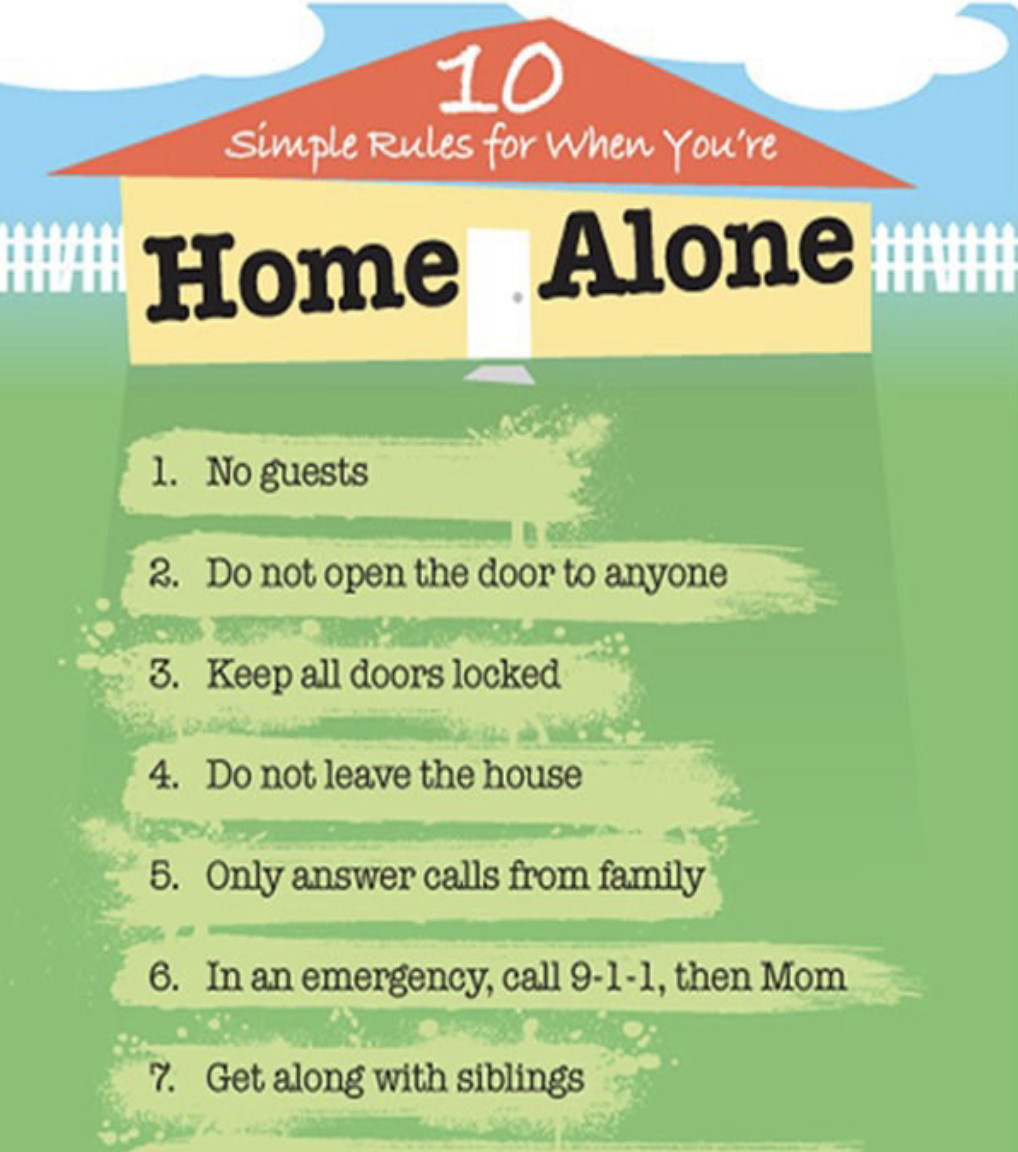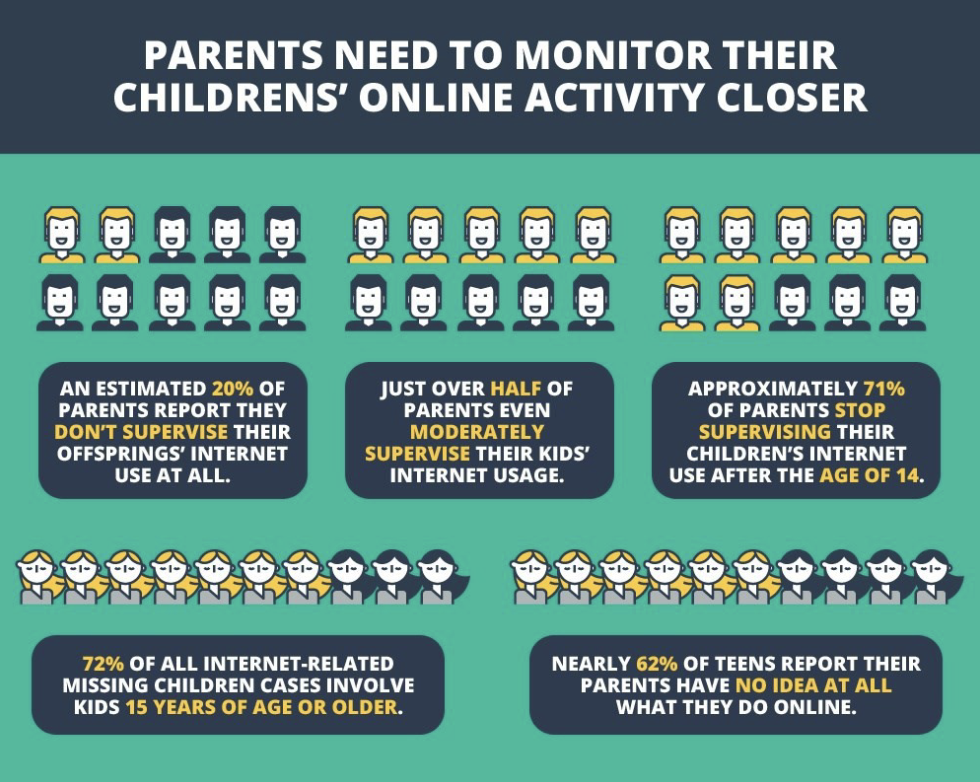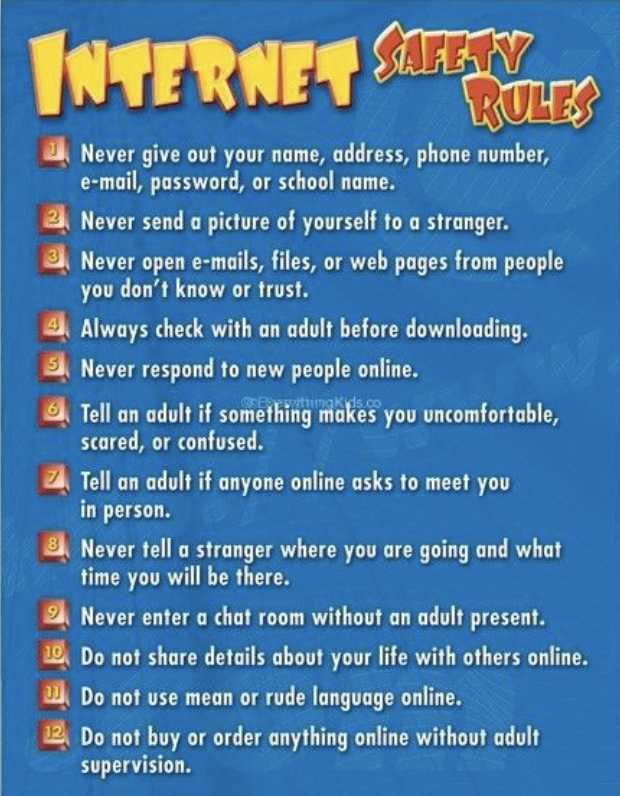
School's Out... Tips for Keeping Kids Safe This Summer
May 25 2023
FOR PARENTS LEAVING KIDS HOME ALONE
WHAT ARE THE RULES/GUIDELINES TO FOLLOW WHEN LEAVING KIDS HOME ALONE?
THE FOLLOWING IS WHAT IS CONSIDERED ACCEPTABLE BY CHILD PROTECTIVE SERVICES:
- Children age 7 and under should not be left alone for any period of time.
- Children ages 8-10 should not be left alone for more than three hours.
- Children ages 11-13 should not be left alone for more than 12 hours.
- Children ages 14-15 should not be left alone for more than 24 hours.
- Children ages 16-17 may be left alone for over 24 hours with a plan in place concerning how to respond to an emergency.
THINGS TO CONSIDER WITH BABYSITTING SERVICES
-
Children under age 11 should not provide child care (babysitting)
-
Children ages 11-15 who are placed in a child care role are subject to the same time restrictions of being left alone as listed above.
-
Children ages 16-17 may be left alone for more than 24 hours with adequate adult back-up supervision
TIPS FOR PARENTS KEEPING KIDS SAFE AT HOME
-
Have an area for emergency contact information and ensure the child knows where it is located.
-
Ensure they know how to call the police and what to expect when they call. Role play it out.
-
Have an emergency escape plan in place and practice it several times per year.
-
Train them to keep the doors and windows locked up at all times.
-
Discuss with them to not open the door to anyone that you have not approved
-
Have set check in times with them throughout the day to ensure they are safe
-
Leave them a daily plan of activities/chores to keep them occupied
-
Have basic rules posted they need to follow
When setting the rules keep in mind they should be easy to understand for the child. They should be reviewed on a regular basis. They should be established consequences for not following the rules. Below is a basic example of home alone rules.

KEEPING THEM SAFE IN THE COMMUNITY
There comes a time when our children need to feel some independence. For many parents is starts will short unsupervised outings in the community such as a walk to a friend’s house, a trip to the store, or heading to the local park to play.
SOME KEY THINGS TO ENSURE YOUR CHILD KNOWS.:
- They should know their address, phone number, and who should be contacted if they need help.
- Discuss with them a list of “safe places” they can seek help. They can include:
- a police officer or station
- a fireman or station
- the library
- the recreation center
- Also include some trusted neighbors or family who may live in the area
- a police officer or station
- Talk with them about when they should seek help. This may include:
- If they are lost.
- If someone is following them.
- If a stranger approaches them and asks them to go with them or offers them something.
- If someone starts a fight with them or tries to bully them.
- If they just feel unsafe or uncomfortable in a situation
- If they are lost.
- Set Rules for Them When They are In the Community
- Make them tell you where they are going.
- Know who they are traveling with; and when they will be home.
- Have them call or text you when they get to the location.
TECHNOLOGY
Our children tend to be ahead of us on the technology curve, but as a parent you must make an effort to keep up to keep them safe. Your goal is to make them smart digital citizens, and ensure they are following the rules you have established for them.
KNOW YOUR RESOURCES - The good news is there are lots of resources you can use to help you navigate the world of apps, social media, and internet browsing. Here are some resources:
- Netsmartz.org– This website has information for you as a parent and on-line programming for you child.
- www.howcast.com/categories/2-tech– It has a variety of how to videos like how to use Twitter or Facebook.
- www.fosi.org/good-digital-parenting– information and tips for parents about specific websites and apps.
- Each app and/or website will usually have help app as well to provide support for the product.

MONITOR YOUR CHILD ONLINE
- Check your child’s browser history on a regular basis.
- Use app & browser settings to exclude some content.
- Review their phones and tablets to ensure only approved apps are on phone.
- Learn about the secret apps where kids can hide sexting and photos such as:
- Private Photo Vault
- Best Secret Folder
- Vaulty
- Gallery Vault
- Gallery Lock
SET THE RULES
Setting rules and making sure the child knows them and the consequences for breaking them is crucial. Have the rules in writing. Review each rule and ensure the child understands what your expectations are for that rule.
Rules may include:
- They may not download apps or software without your permission.
- They must be 13 (or whatever age you feel is right) to set-up a social media account.
- They must submit their phone/devices to you for inspection when requested.
- They may not friend a non-related adult on Facebook or apps without your permission.
- They should never give out personal information.
More examples below:

FOR KIDS STAYING SAFE AT HOME
What should you do when you are home alone?
- Don’t answer the door unless you have your parent’s permission. Never tell anyone at the door you are home alone.
- Always keep the doors and windows locked.
- Check in with your parent/guardian at the scheduled times always.
- Never have guests to the home.
- Don’t cook without your parent’s permission.
- Know your emergency phone numbers.
- Know a safe place to go if you need help.
- Don’t leave the house without permission.
- Don’t leave a key hidden outside the house.
STAYING SAFE ON-LINE
Everyone is excited to get online and develop a presence on social media, so you can stay in contact with your friends, but you want to do it safely.
- Never give out personal information like your name, address, phone number, or school online.
- Don’t open email attachments or links you don’t know.
- Don’t post revealing photos of yourself or friends online or text them
- Don’t sext with friends or adults.
- Don’t friend an adult without your parent’s permission.
- Don’t agree to meet an adult you met online.
- Don’t bully others.
STAYING SAFE IN YOUR COMMUNITY
Your neighborhood can be a great place to explore and meet your friends. Following some simple rules can help you stay safe while in your community.
- Let your parent/guardian know where you are going and when you leave. When you get to your destination let them know you have arrived.
- Tell them who you will be with and when you will come home.
- Know safe places to go, if you need help, like the police, library, or recreation center.
- Never talk or go with a person you don’t know; even if they offer you something amazing.
- Never take anything from a stranger.
- Never give money to anyone who asks.
- Don’t tell a stranger where you live or your personal information unless it is a trusted person like a police officer.
- If you feel uncomfortable in a situation try to leave it as soon as possible.
- Don’t participate or watch a fight or act of bullying.
- Only cross streets in crosswalks.
- If you are biking always wear a helmet and follow your bike rules.

